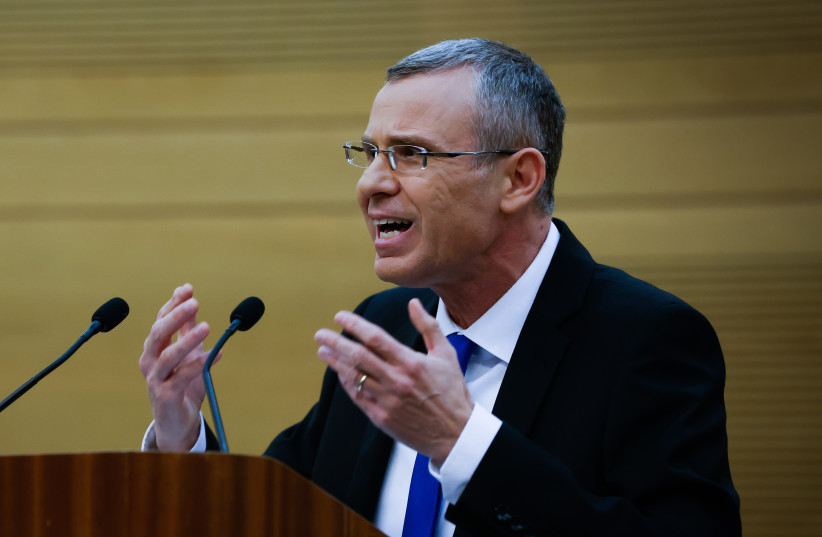The coalition plans on splitting the main judicial reform bill into two to ensure that at least part of it will pass its first reading by the end of the Knesset’s winter session on April 2, Justice Minister Yariv Levin’s office confirmed on Monday.
The coalition will likely first focus on changing the makeup of the judicial appointments committee and limiting the High Court of Justice’s power to strike down laws, according to a report.
While Levin’s office did not confirm this, the rationale for beginning with these issues is clear: The coalition by law needs to appoint representatives to the judicial appointments committee four months after the Knesset’s swearing in, which ends in mid-March.
The Knesset Home Committee will attempt to postpone this by three additional months, according to a Channel 13 report, but the coalition will still begin with this legislation in order to meet the deadline.
Why does the Israeli coalition want to limit the High Court?
The reason the coalition also wants to quickly limit the High Court’s power to strike down laws is that this would block the High Court from striking down the following parts of the reform. The proposal is to completely bar the High Court from striking down Basic Laws, and limit striking down regular laws to a unanimous decision by all 15 justices.

Levin’s office stressed that, in any case, the coalition will still attempt to pass the first reading of all of the reform’s provisions by the end of the Knesset’s winter session. The laws will then return to the Knesset Constitution Committee for preparation for their second and third readings. No parts of the reform therefore will likely pass into law before May.
Levin on Sunday said in an interview on Channel 13 that he would not stop the legislative process “even for one moment,” and a number of media outlets reported on Monday evening that the Knesset Constitution Committee may vote to approve at least the change in the makeup of the judicial appointments committee as soon as this Monday.
Levin’s refusal to stop the process came in response to a proposal by President Isaac Herzog last week to freeze the legislative process for two weeks to try to arrive at a compromise between the coalition, opposition and representatives of the High Court.
Chief Justice Esther Hayut reportedly refused to participate in any such negotiation while the legislative process was ongoing.
